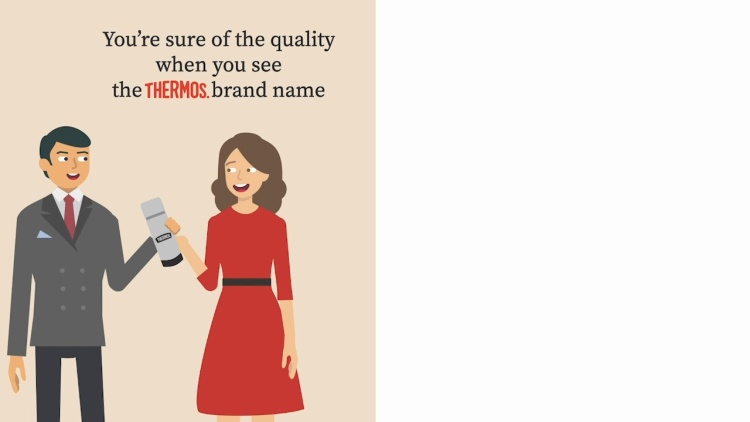King-Seeley Thermos Co. v. Aladdin Industries, Inc.
United States Court of Appeals for the Second Circuit
321 F.2d 577 (1963)
- Written by Nicholas Decoster, JD
Facts
In 1907, King-Seeley Thermos Co. (Thermos Co.) (plaintiff) began advertising the term “Thermos” to describe its vacuum-insulated bottle for food and beverages. Initially, Thermos Co. made no attempt to designate the term Thermos as an indicator of the source of the product, and over the years the word came to be understood by consumers as a generic term to describe the product category of vacuum-insulated bottles. In 1923, after realizing that the Thermos trademark was in danger of becoming generic, Thermos Co. undertook a campaign to identify Thermos as a trademark. The campaign failed, however, and by 1950, the word “thermos” had become nearly synonymous with a vacuum-insulated bottle and was not widely viewed as a trademarked indicator of source by the consuming public. Aladdin Industries, Inc. (Aladdin) (defendant) developed its own vacuum-insulated bottles to be sold as thermos bottles. Thermos Co. brought a trademark-infringement suit against Aladdin to enjoin the use of the Thermos trademark. Aladdin argued that the term thermos had become generic when used in connection with vacuum-insulated bottles and that Thermos Co. was no longer entitled to trademark rights in the term. The district court held in favor of Aladdin, finding that thermos had become a generic term for vacuum-insulated bottles and could no longer be registered as a trademark. Thermos Co. appealed the decision.
Rule of Law
Issue
Holding and Reasoning (Moore, J.)
What to do next…
Here's why 907,000 law students have relied on our case briefs:
- Written by law professors and practitioners, not other law students. 47,100 briefs, keyed to 996 casebooks. Top-notch customer support.
- The right amount of information, includes the facts, issues, rule of law, holding and reasoning, and any concurrences and dissents.
- Access in your classes, works on your mobile and tablet. Massive library of related video lessons and high quality multiple-choice questions.
- Easy to use, uniform format for every case brief. Written in plain English, not in legalese. Our briefs summarize and simplify; they don’t just repeat the court’s language.





